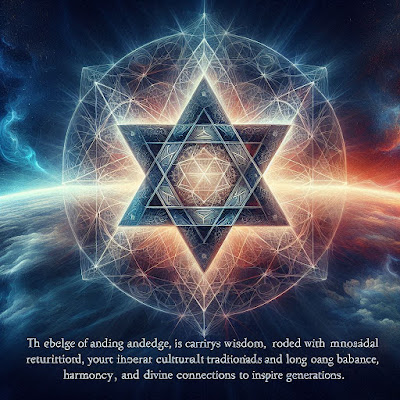Tribalism in Islam: Embracing Unity Over Division
- Get link
- X
- Other Apps
Qur'anic Teachings on Unity
In Surah Al-Hujurat (49:13), Allah says:
"O mankind, indeed We have created you from male and female and made you peoples and tribes that you may know one another. Indeed, the most noble of you in the sight of Allah is the most righteous of you. Indeed, Allah is Knowing and Acquainted."
This verse emphasizes that tribes and peoples were created for the purpose of knowing one another, not for superiority or division. The key point here is that piety and good deeds, not tribal or ethnic identity, determine a person’s worth before Allah.
The Prophet's (PBUH) Teachings
The Prophet Muhammad (PBUH) also spoke vehemently against tribalism. In his farewell sermon, he said:
"All mankind is from Adam and Eve. An Arab has no superiority over a non-Arab, and a non-Arab has no superiority over an Arab; a white has no superiority over a black, nor does a black have any superiority over a white; none have superiority over others except by piety and good action."
This statement is a direct refutation of tribalism, emphasizing that all people are equal, regardless of their racial, ethnic, or tribal backgrounds. Superiority lies only in one’s God-consciousness (taqwa) and actions, not in the group one belongs to.
Islamic Social Structure and Brotherhood
The concept of ummah—the global community of Muslims—further reinforces the Islamic view of equality. The Prophet (PBUH) encouraged Muslims to see each other as brothers and sisters, with a deep sense of collective responsibility and care. In fact, the Prophet (PBUH) said:
"The believers are but brothers." (Qur'an 49:10)
This brotherhood transcends tribal and familial lines, focusing instead on shared faith and mutual support.
Islamic Law and Social Justice
Islamic law (Sharia) is built on principles of justice, equity, and the protection of human dignity, all of which stand in opposition to tribalism. Tribal divisions often lead to injustices, including discrimination, exploitation, and violence, but Islam mandates fairness and the equal treatment of all people, irrespective of their background.
Practical Implications of Rejecting Tribalism in Islam
Social Harmony: Tribalism, by its nature, fosters division and social inequality. Islam encourages unity by abolishing such distinctions. This can be seen in the practice of congregational prayers (Salat) and other communal acts of worship, where all Muslims stand together as equals.
Dismantling Prejudices: By teaching Muslims that all are equal in the sight of Allah, Islam dismantles harmful biases such as racism, classism, and tribalism. Every person is judged on their faith and deeds, not their birth or family.
Focus on Piety: The emphasis on personal righteousness over tribal status means that Muslims should focus on their relationship with Allah, rather than on external social structures. This leads to personal growth and contributes to the greater well-being of society.
Conclusion
Islam’s rejection of tribalism calls for a society based on equality, unity, and justice. The principles established in the Qur'an and the Hadith challenge societal norms that place value on race, ethnicity, or tribe, urging Muslims to live beyond such divisions and embrace their shared humanity and piety. As the Prophet Muhammad (PBUH) said, "You are all equal in the eyes of Allah, and your worth is based on your deeds and character, not your lineage."
Image Description: A powerful visual representation of unity and equality in Islam, featuring diverse people standing together in prayer, symbolizing the dismantling of tribalism and the embrace of collective spirituality and brotherhood.
- Get link
- X
- Other Apps




Comments
Post a Comment